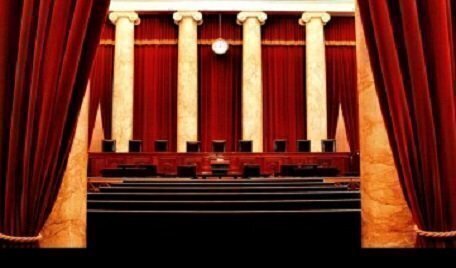On Monday, the eight Justices currently on the Supreme Court will consider a long list of appeals for its next term, including several high-profile cases.
 Annually, the Court ends its summer break by considering thousands of petitions in a private meeting called the Long Conference about a week before starting its next term. According to the website CertPool, nearly 2,000 cases have accumulated in recent months. These cases were distributed to the Justices and their clerks between June and early September.
Annually, the Court ends its summer break by considering thousands of petitions in a private meeting called the Long Conference about a week before starting its next term. According to the website CertPool, nearly 2,000 cases have accumulated in recent months. These cases were distributed to the Justices and their clerks between June and early September.
On Thursday, the Supreme Court will announce orders with the list of Long Conference cases that will be accepted for arguments. In 2018, nine cases were initially accepted; in 2017, the Justices accepted eight cases. Next week, another small number of cases could be added to the 2018 term docket.
Those Long Conference cases can be significant. Last September, the Supreme Court decided to hear Janus v. American Federation, the case about the compelled financial support for public unions, and Collins v. Virginia, which was about the Fourth Amendment’s “automobile exception.” Both cases were among the biggest decisions made by the Court in the past year.
For the Court to accept a case, at least four Justices need to agree to hear it. Over the summer, their clerks decided which cases to recommend to them for acceptance.
Among this year’s cases on the Long Conference list are several that have received some publicity. In Martins Beach v. Surfrider Foundation, the Supreme Court will consider if a California law, that requires a landowner to get a permit to exclude public access to a private beach, is in fact a taking under the Fifth Amendment.
In two related cases, Maryland-National Capital Park and Planning Commission v. American Humanist Association and The American Legion v. American Humanist Association, the Court will consider if a World War I memorial in the shape of a cross can remain on public property. The memorial was erected on private property in 1925 by the American Legion, but the planning commission later acquired the property due to traffic concerns. A split federal appeals court ordered the cross’s removal from the current property. The petitioners argue that Court misapplied a constitutional test in that decision.
An appeal related to a Supreme Court decision in 2017 is back in front of the Justices. In Hernandez v. Mesa, the Supreme Court considered first a case from the Fifth Circuit where a Mexican teen was shot and killed while standing on Mexico's territory by a U.S. border patrol agent on the United States side of the border in El Paso, Texas. In a per-curium opinion, the case was sent back to the Fifth Circuit to consider a question that hadn’t been addressed originally. In March 2018, an en banc Fifth Circuit panel ruled that the teen’s family couldn’t pursue a civil lawsuit against the border agent in Texas. The decision was appealed to the Supreme Court in June 2018.
And another case about vehicle searches is up for consideration. In Johnson v. United States, the question is about the ability of the police to use probable cause to search a motor vehicle when its driver appears to have committed a non-moving parking infraction. The petitioner claims such tactics are Fourth Amendment violations.
Scott Bomboy is the editor in chief of the National Constitution Center.







